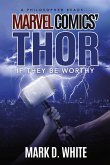"Crimes are more effectually prevented by the certainty than the severity of punishment" Originally published in 1764, Beccaria's treatise argued rationally against torture and death in the name of law and order. It was influential throughout Europe, leading to reforms in France and Tuscany. Its influence is difficult to overstate. A later edition included an anonymous commentary by Voltaire, and translations such as this one were widely read by some of the world's greatest writers and academics: John Adams, Thomas Jefferson, William Blackstone, William Eden and Jeremy Bentham, to name a few.
Hinweis: Dieser Artikel kann nur an eine deutsche Lieferadresse ausgeliefert werden.
Hinweis: Dieser Artikel kann nur an eine deutsche Lieferadresse ausgeliefert werden.








